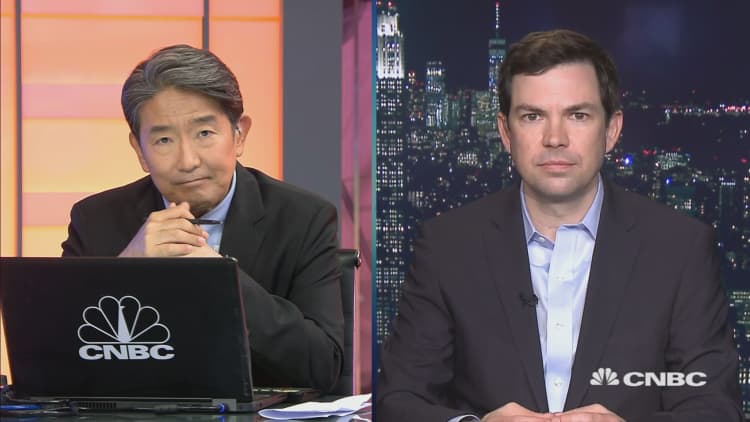
Goldman Sachs sees a "pretty big opportunity" for the Indonesian rupiah in 2020, according to one strategist at the investment bank.
"If investors can be picking up you know quite a lot of yield in Indonesian assets and have a relatively stable macroeconomic and global growth environment, we think it's a pretty attractive play," said Zach Pandl, co-head of global foreign exchange, rates, and emerging markets strategy at Goldman Sachs.
On the domestic front, Indonesia is "a story of stability," Pandl told CNBC's "Squawk Box" on Friday. "You have growth stability. You have a pretty good governance picture in Indonesia and you have a central bank that is trying to keep the currency relatively stable."
Bank Indonesia has reduced its reverse repo rate by 100 basis points so far in 2019, following an accumulated 175 basis points hike in 2018 as the central bank sought to defend the rupiah amid an escalating U.S.-China trade war.
The rupiah, which was at 14,010 per dollar on Wednesday morning Asia time, has risen more than 2.5% so far this year.
Pandl said, "the global environment is looking a little bit better," as the U.S.-China trade situation seems to be heading in the right direction.
"That makes us comfortable moving a little bit out of the risk spectrum into some (emerging markets) exchange rates that we've been steering clear from ... for the prior year," Pandl said.
He explained the Indonesia rupiah "checks that box" as it is not that far out the risk spectrum while also being a high-yielding currency that can be funded with a lower-yielding one, he added.
And that's not even accounting for a potential "ratings action on Indonesia, that would be an additional bullish factor," the strategist said.
"That's not something that we're discounting and yet we still think that (going) long Indonesia, funded with a low-yielding currency like Taiwan (dollar) or euro, is a 10% or maybe a bit higher return opportunity for the next year," Pandl said.


